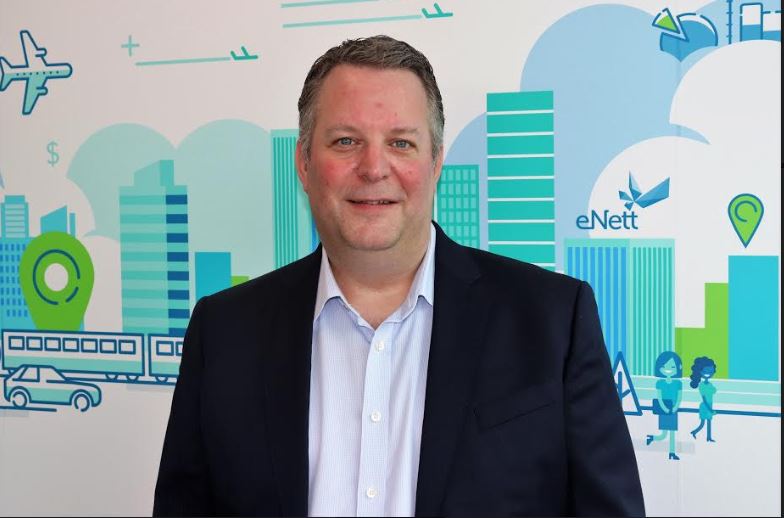IT Leadership: These five technologies are transforming the travel experience

The whole notion of what today’s hyperconnected travellers want, and what they value, has changed. While cost, choice and convenience are still significant, booking decisions are now based on the experience.
Right from the moment that a traveller thinks about a trip, to planning it, booking it and living it, we in the travel industry must deliver a convenient, personal, end-to-end experience.
Competition in the industry is fierce. Disruptive business models delivering new kinds of inspirational experiences have changed the landscape, overthrowing longstanding monopolies and causing travellers to question their loyalty.
We believe the future of creating experiences lies in the transformative impact of five key technologies: The Internet of Things; Mobile; Artificial Intelligence; Big Data and Cloud Computing. These technologies are powering the travel industry to offer more than just a trip. We call this evolution in travel retail ‘Distribution 4.0’ – the travel industry’s implementation of the fourth industrial revolution.
The Internet of Things (IoT)
The IoT relates to the interconnection – via the Internet – of computing devices that are embedded in everyday objects, which can send and receive data at speed. Growth in the technology is impressive, with experts predicting that there will be 27 billion IoT devices globally by the end of next year.
The IoT is fundamentally changing the travel experience. Sensor-based baggage solutions, for example, can send push notifications to tell travellers when their bag is loaded, when it arrives and where it is being transferred to. In addition, hotels are using IoT technology to know if a room is empty by getting intelligent sensors to help detect occupancy.
As growth in IoT devices continues, so will the number of possibilities the travel industry will have to enhance the experience it delivers.
Mobile
More than two-thirds of the world’s population, 5 billion people, are now connected to a mobile service. According to a recent report, Kenya is leading globally in share of internet traffic coming from mobile phones – overtaking Nigeria, which topped the list in 2017. This is attributed to the high smartphone penetration rate, which stands at 41 million, with a reach of 90 per cent of the adult population.
Our own research conducted with 11,000 respondents from 19 countries revealed just how vital the mobile is for contemporary travellers. Not only do 33 percent of travellers book their trips on a mobile device, but 62 percent say digital boarding passes and e-tickets make travelling much easier, and 46 percent say a good digital experience is important when choosing an airline.
It’s important to note that the demand for mobile engagement isn’t just coming from leisure travellers. Another Travelport study showed that business travellers now count being unable to access booking information across their devices 24/7 as one of their biggest gripes.
Today, when travelling, your mobile is always with you. It offers a means of continuous, one-to-one engagement, enabling different offers and the availability of services to be tailored to your specific preferences, often through its connection to the IoT. Many airlines, hotels and travel agents are already utilising this to improve the travel experience, while opening new lines of revenue, but you can expect many more to follow in the future.
Artificial Intelligence (AI)
AI refers to computers or machines performing tasks that would normally require human intelligence to carry out. This could, for example, be learning lessons, making decisions, or recognising and interpreting speech.
At Travelport, we believe AI is the golden ticket that can unlock insights to create the personalised, tailored and customised experience travellers crave. Advanced AI solutions, for example, can eliminate the need to be reactive, allowing businesses to become more proactive and strategic through predictive capabilities – i.e. recommendation engines that suggest real-time entertainment options based on individual preferences.
By constantly informing a travel AI, training it and providing it with access to the richest, most extensive real-time data sets, opportunities to deliver personal, frictionless travel experiences become endless.
Big Data
According to IBM, 90 percent of all data has been created inside the last two years. The ways we share, analyse and absorb information through technology have now exploded to the point where big data’s usage is far more commonplace.
Big data carries many opportunities for the travel industry. With customers creating valuable data at every stage of their journey, travel companies can collect and connect these data points to improve the customer experience.
To utilise this data, we need access to significant quantities of computing power. Some of this can be provided by cloud-based infrastructure.
Cloud computing
Cloud computing technology provides the infrastructure to compute vast amounts of data quickly, affordably and on-demand.
It is the glue that holds the travel industry together by enabling data and content to be moved with relative ease, as well as computed and delivered as close to the point of consumption geographically as possible.
Cloud technology ultimately provides the bandwidth to scale and perform efficiently, even during intense peak periods, whilst simultaneously delivering cost efficiencies for travellers.
To conclude
We should be excited about what the future of the travel industry holds. In the fourth industrial revolution, delivering the right kind of travel experience is going to rely on practically applying the technologies described here. The onus now falls on us to be enterprising enough to grasp the opportunities gifted to us by technology.
This article was written by Guido Verweij, Travelport’s Regional Managing Director for Africa. Are you an IT industry leader and want your work/article to be featured on our website under our IT Leadership section? Drop us an email on info@techtrendske.co.ke.



